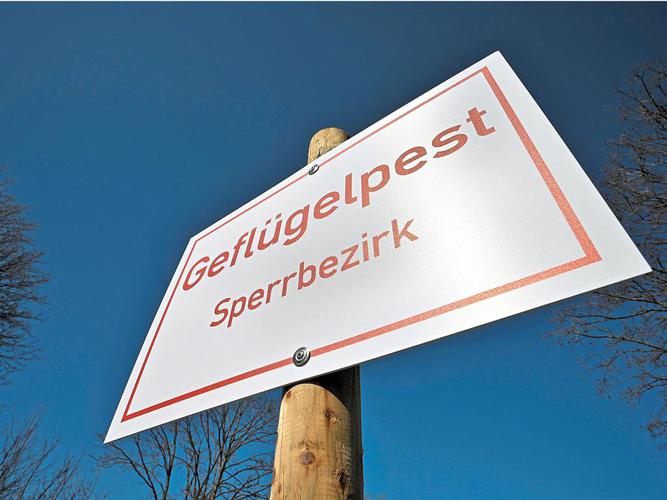The Paderborn district announced on Saturday that the observation and restricted area around the affected company in Westenholz would be lifted by general decree. The restricted area around the outbreak operation at Delbrook-Hagen will become an observation area. Both general instructions apply over the weekend. In fact, nothing will change for poultry farmers. Due to two more outbreaks of avian influenza on 10 and 14 April in the immediate vicinity, restricted areas and observation areas had to be reestablished, which are still in force and spatially nearly identical. At present, all conditions remain the same.
Animals, meat or eggs are not allowed to be transported. Exceptions are possible. It should be ensured that transport vehicles and containers are cleaned and disinfected after each transport. Can be found in the application form www.kreis-paderborn.de/gefluegelpest
Downloaded Poultry farmers can also use an interactive map on this page to check if they are in one of the two restriction areas.
There are currently 127 farms in the restricted area, of which 15 have more than 10,000 animals, 18 between 1000 and 9999. The observation area consists of 653 farms, of which 37 have more than 10,000 animals, 34 have between 1000 and 9999 animals.
Compulsory stability for the area of the entire district
The head of the Office of Consumer Protection and Veterinary Affairs insists, “The entire Paderborn district still needs to be deactivated at least until mid-May.” Dr. Elizabeth Altfeld.
All chickens such as chicken, turkey, guinea fowl, partridge, pheasant, rat, quail, duck and geese should be kept in a closed stall or aviary. Restrictions on poultry exhibitions, poultry markets or events of a similar nature are also prohibited.
How can the avian influenza pathogen be transmitted?
Avian influenza pathogens can be transmitted directly through contact with wild birds and indirectly through infected food, water, equipment, shoes, clothing, etc. Stable liability and biosecurity measures such as restrictions on access to stables, changing of clothes and disinfection measures should therefore be strictly followed. Poultry can only be fed in places inaccessible to wild birds. Feed, litter and other items with which the fowl may come in contact should be kept inaccessible to wild birds. Also, no surface water can be used to water animals to which wild birds have access.
Symptoms of avian influenza
Infections pass only a few hours or days in an outbreak of avian influenza (the so-called incubation period). Indications may be high fever, shortness of breath, discharge from the eyes and beak, sluggish, ruffled plumage, central nervous disorders, little or no laying performance or thin-skinned, discolored eggs, and increased deaths. All animals in the herd can fall ill and die within a few days. Such infection can only be confirmed by a laboratory test. Ducks and geese often become less and less seriously ill, but still carry out the virus and can infect other chickens.
What to do if you suspect avian influenza
If avian influenza is suspected, the veterinary office should be contacted immediately by telephone. Information during telephone service hours, veterinarians can be reached through the telephone control center on 02955/76760.
Background:
In all five outbreaks of avian influenza in March / April, the Frederick-Loeffler-Institute detected a highly infectious form, influenza virus A, subtype H5N8. According to the Avian Influenza Ordinance, a restricted area is established around the outbreak focus and an observation area in the event of such an outbreak. Its purpose is to prevent the spread of the highly contagious avian influenza pathogen and to prevent significant economic damage to agriculture. Therefore the Avian Influenza Ordinance prohibits the killing of the entire poultry population of the concerned farmer even in the event of official suspicion. A total of 315,000 animals had to be killed.
all information: kreis-paderborn.de/gefluegelpest

Web guru. Amateur thinker. Unapologetic problem solver. Zombie expert. Hipster-friendly travel geek. Social mediaholic.





